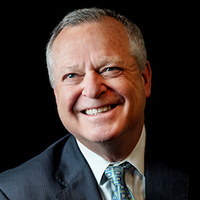Relief meets reality: The pandemic is not over yet

Joseph J. Fifer
In November, I returned from HFMA’s 2021 Annual Conference in Minneapolis, reflecting on how wonderful it was to gather together again, nearly two-and-a-half years after our last in-person Annual Conference. The sense of relief was palpable among people reconnecting after a long time apart: We made it through. It was tough, but we’re still here.
During the holiday season, it’s even more tempting to hold onto that sense of having made it through. But for me, relief was tempered by the reality of the challenges that lie ahead. In Minneapolis, we missed colleagues who were unable to travel due to pandemic-related limitations. As I write this, one month later, those limitations continue.
Facing the reality of healthcare workforce challenges
Our healthcare workforce is suffering. This is the worst employment environment I have witnessed in nearly 40 years in the industry. Some clinicians have left the field entirely while many others report feeling frustrated, exhausted and even hopeless — and that was before anyone knew about the Omicron variant.
In healthcare, our biggest strength is our people. It’s imperative now, more than ever, to let our people know how much they are valued. As highlighted in HFMA’s Healthcare 2030 report on the workforce of the future, half of our workforce doesn’t feel valued by their organization or feels only slightly valued by it, which makes them even more susceptible to burnout.
Showing our people that they are valued
What can healthcare leaders do? Start by taking the time to acknowledge how adaptable and resourceful our people are. Our management and administrative staff adjusted overnight to working from home, an arrangement that is great for some but difficult for others, such as parents with young children.
And we can also take the time to celebrate the miracles that happen every day — not just the miracle outcomes, but the miracle experiences. I’m thinking of times when our people succeed in replacing the pain, fear and anxiety of those who are ill with a sense of ease, confidence and hope; when they hold patients’ hands, literally and figuratively. I’m thinking of my daughter, who is a physician assistant, and the conversations she routinely has with patients and their families that go way beyond clinical care. During this holiday season, in particular, we should all be thanking the clinicians who gown and mask up every day and head back into the fray.
In Minneapolis, we presented HFMA’s highest honor, the Richard L. Clarke Board of Directors Award, to our nation’s frontline healthcare workers, honoring them for the miracles they create every day. Yes, challenges remain both in our industry and in our society, and they go far beyond the pandemic. But this is a time to celebrate all of you in healthcare — you are the heroes who have helped so many make it through this far.





